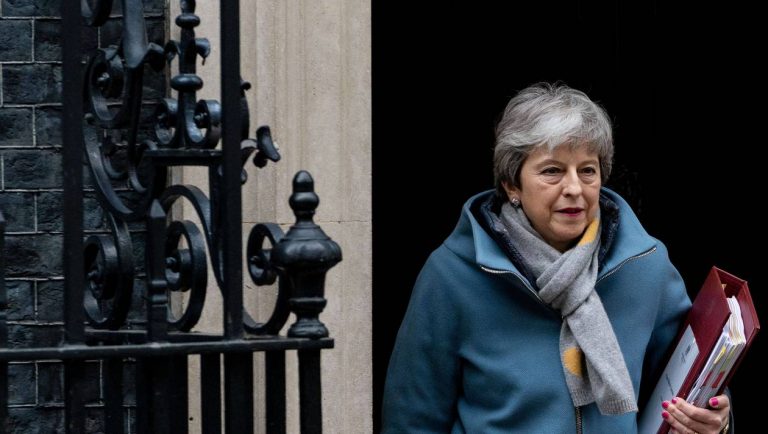The head of the British government sent a letter Wednesday to the European Union to request a postponement of three months for the exit of the United Kingdom until the end of June. But European leaders recall that such an extension of time can only be linked to the adoption of the withdrawal agreement already negotiated.
It may not be March 29th, finally. Theresa May officially asked Wednesday 20th March, a postponement of Brexit
In a letter sent to the President of the European Council, Donald Tusk, the British Prime Minister calls for an extension of the deadline set by Article 50 of the Treaty on European Union.
The Commission considers that there will be a cost
The European Commission said on Wednesday morning that an extension of the Brexit should either last until the 23rd May, the date of the European elections, or be longer and involve the United Kingdom in the ballot. In a document, the EU executive said that an extension until June 30th would be legally and politically difficult.
For the chief negotiator of the Union, Michel Barnier, “an extension is an extension of uncertainty, it has a political and economic cost”. “This is the reason, the purpose of this extension […] that will condition the duration” of a postponement, he said Tuesday 19 March to the press after a meeting in Brussels with representatives of the 27.
For its part, the Quai d’Orsay has indicated that France is against a postponement if Theresa May does not present a strategy described as “crédible”.
European Council President Donald Tusk announced at a press conference Wednesday that the short extension requested by Theresa May will be possible “provided that the Brexit agreement is approved by the House of Commons” , while estimating that “the duration until June 30th poses problems”.
#Brexit: La breve extension demandée par @theresa_may sera possible “à condition que l’accord de divorce soit approuvé par @HouseofCommons mais la durée jusqu’au 30 juin pose des problèmes”, souligne @eucopresident
Pas de #EUCO extraordinaire prévu, mais “possible si nécessaire”— Christian Spillmann (@CSpillmann) March 20, 2019
The United Kingdom still in uncertainty
Ten days from the theoretical exit date of the EU, and nearly three years after the June 2016 referendum that decided Brexit, the country and parliament remain equally divided on the forms that divorce must take: cut net and exit without agreement for the Brexiters, or orderly exit with a withdrawal agreement and maintaining close ties. Theresa May was trying to get the withdrawal agreement she laboriously negotiated with Brussels before the EU summit on Thursday and Friday, to ask the 27 members, a limited Brexit report allowing the technical implementation of the agreement. But his strategy was scuttled by the unexpected blow of Speaker of the House of Commons Speaker John Bercow.
The latter decided Monday, March 18 that a text could not be submitted unchanged to the MP’s a second time during the same parliamentary session, while the second version of the withdrawal agreement was already rejected by a large majority the week last.



